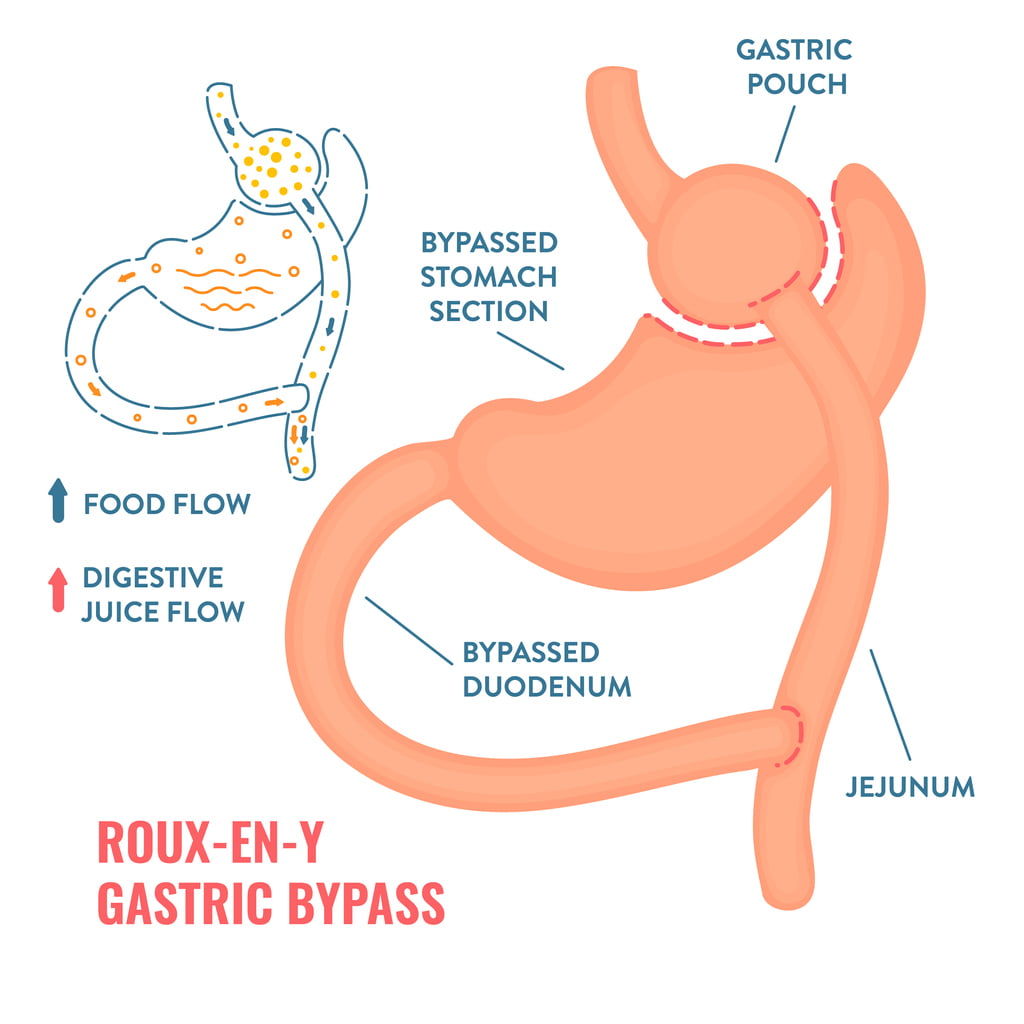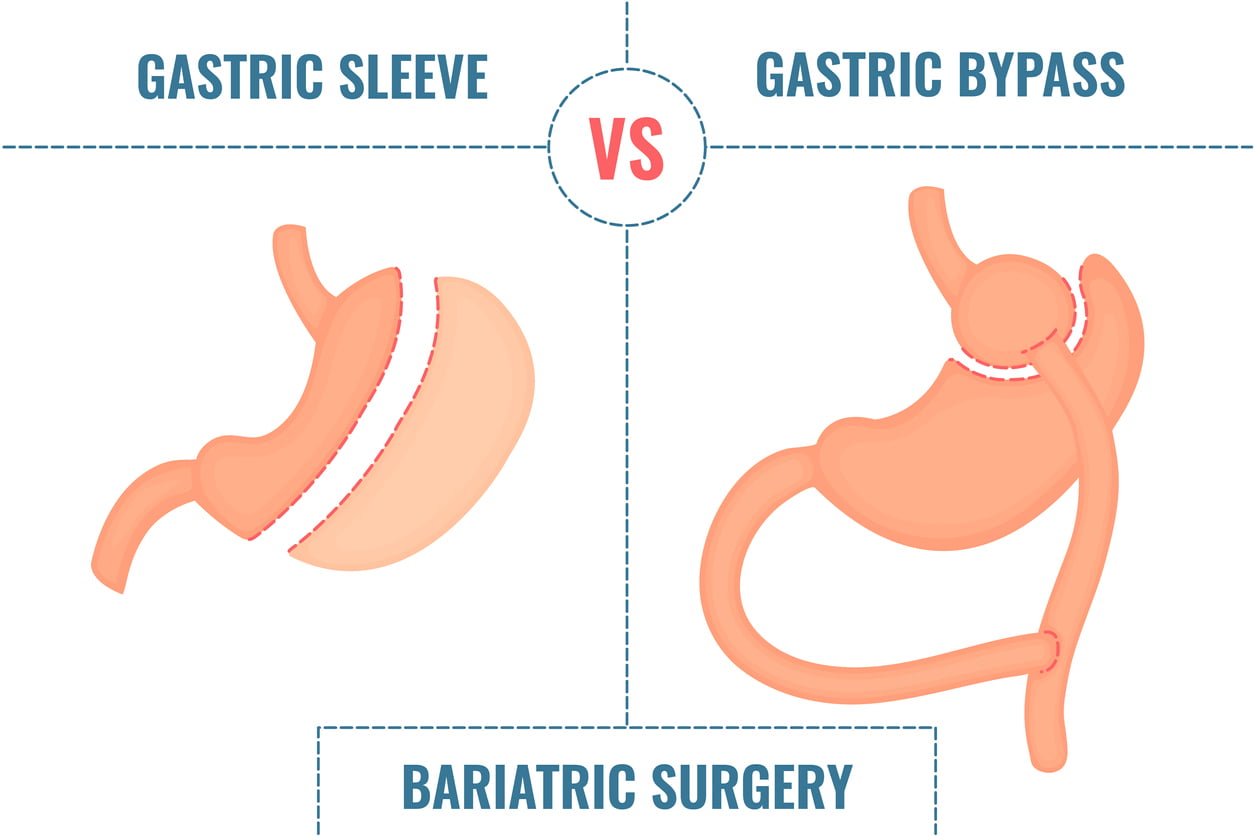
It’s estimated that nearly 262,892 people underwent weight loss surgery in 2021, and numbers are predicted to keep rising. While weight loss surgery may seem like the latest and greatest technique to lose weight, it dates back to 1954 when Dr. A.J. Kremen and his team performed the first form of bariatric surgery—-gastric bypass surgery.
After making a few adjustments in 1967 and later in the 1990s, gastric bypass has stood the test of time. Because of this, gastric bypass is a tried and true method for those wanting to lose a significant amount of weight.
Laparoscopic Gastric Bypass 101
If you’ve been considering weight loss surgery but weren’t sure if it’s just a fad, look no further than gastric bypass! The experts at BMI Surgery are taking an in-depth look at gastric bypass surgery and if it’s right for you.
What Is Laparoscopic Gastric Bypass?
Gastric bypass, also called the Roux-en-Y procedure, is performed laparoscopically through small, precise incisions. During a laparoscopic operation, the surgeon will insert a tiny camera and surgical instruments into the incisions. With these minimally invasive techniques, many patients experience fewer complications, less hospital time, and a quicker recovery.
How Does Laparoscopic Gastric Bypass Work?
As you may have guessed, Roux-en-Y is a French term, which means in the shape of a Y. Gastric bypass works by dividing the stomach and the small intestine and then joining the segment together to create a Y shape.
Gastric bypass combines two techniques for weight loss: restriction and malabsorption. First, your surgeon will section off your stomach, which forms a small pouch. This pouch is your new and improved stomach and is smaller than the original size, so it restricts the amount of food it can hold. Then, the pouch is joined to a lower segment of the small intestine, which decreases the absorption of calories from your food. What’s more, is that this procedure usually only takes one and a half to two hours.
If you’re more of a visual learner, check out the illustration below. You can see where food and digestive juices flow and look closer at the renowned Y shape.

What Is Recovery Like After Laparoscopic Gastric Bypass?
On average, 60-80% of excess body weight is lost two years following gastric bypass. Gastric bypass is highly effective for weight loss, but supporting your weight loss during recovery and beyond is essential.
After laparoscopic gastric bypass, you’ll most likely eat a few bites of food and feel full, which leads to significant and quick weight loss. Since your body isn’t absorbing all the nutrients in the small intestine, following your doctor’s instructions about supplementing your diet with oral vitamins and minerals is important.
Beyond that, you’ll recover as you would from any other surgery—slow and steady. We recommend following a healthy diet and beginning light exercise as soon as you feel up to it. Check out this blog for more information about preparation and recovery for laparoscopic gastric bypass.
What Is the Difference Between Gastric Sleeve and Laparoscopic Gastric Bypass?
Great question! Gastric sleeve is another popular weight loss surgery and removes about 80% of the stomach to restrict calorie intake. The gastric sleeve isn’t malabsorptive like laparoscopic gastric bypass and doesn’t involve the small intestine. In the image below, you can see a side-by-side comparison of these two weight loss surgeries.

Both techniques are proven effective for weight loss, and which you choose depends on your personal needs. For example, gastric bypass may be better for those who suffer from acid reflux. On the other hand, gastric sleeve may be better suited for patients with high-risk medical conditions since it typically takes less time under anesthesia.
Luckily, you don’t have to decide which is right for you! Of course, you’ll always have the final say, but your surgeon can recommend which weight loss surgery suits your needs and will provide you with the results you desire.
Who Is a Candidate for Laparoscopic Gastric Bypass?
If you’re interested in weight loss surgery, you’ll undergo a complete evaluation and consultation with your weight loss surgeon to ensure your safety.
However, there are a few general requirements for bariatric surgery, including
- BMI (Body Mass Index) of 40 or more
- BMI (Body Mass Index) of 30 or more with weight-induced medical conditions (hypertension, diabetes, etc.)
- Documented attempts of diet and exercise for weight loss
- No indication of alcoholism or drug use
If you’re curious about your Body Mass Index, check out our BMI calculator. It’s quick, easy to use, and can estimate your BMI in seconds. It’s important to note that this number isn’t a fool-proof method, and you should always consult your doctor about wanting weight loss surgery.
Lose Weight with Laparoscopic Gastric Bypass
If you’ve been trying to lose weight to no avail, gastric bypass may be your long-awaited solution! With years of refining, bariatric surgery is a proven method to help you achieve your dream body—whether you choose gastric sleeve or laparoscopic gastric bypass.
If you’re interested in becoming the best version of yourself, learn more about weight loss at BMI Surgery! With years of experience, we’re dedicated to helping you find a weight loss solution that’s right for you.
Interested in Learning More About Weight Loss Surgery? Call Us!
Proudly serving Birmingham, AL, and beyond, BMI Surgery offers effective, affordable weight loss surgeries. If you’d like to learn more about weight loss surgery, don’t hesitate to contact our team of experts. Call us at (205) 833-6907 or contact us online today!

